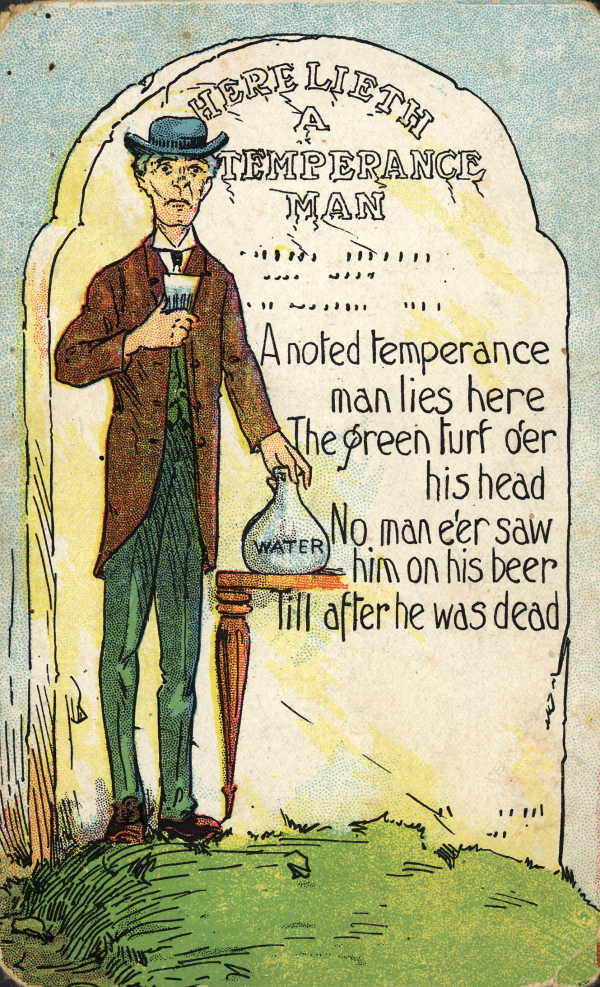
One of the tenets of the “lifestyle design” movement that has emerged over the past decade is the desirability of “outsourcing” one’s life. Once a term used in the context of economics and industry to denote the shifting of jobs from first to third-world countries, it has come to be applied to the off-loading of one’s personal tasks and chores to other people. In addition to handymen and housekeepers, our modern world offers the possibility of hiring someone in the Philippines to take care of your work emails, a planner to organize your child’s birthday party, a sleep coach to help your baby slumber through the night, a life coach to help you reach your goals, and nurses to take care of your elderly parents. You can get your food at a restaurant, delivered to your door, or prepared by a personal chef. You can rent a friend or avail yourself to the services of a professional cuddler (I kid you not). You can even hire a “wantologist” to help you figure out what you really, really want.
The end goal of all this outsourcing of one’s less desirable tasks is to open up as much time as possible for doing the things you truly enjoy in life. This ideal was most famously laid out by Tim Ferris in The 4-Hour Workweek — a guide to automating your business and life to the point where you can retire early and spend your days learning to tango on the beaches of Tahiti.
Some see personal outsourcing as an unmitigated good, while others view it as a significant detriment to the development of character — something that will sap the DIY-spirit and self-reliance so crucial to manhood. In truth, it is not an issue best rendered in black and white. So today we’d like explore both sides of the coin and delve into the pros and cons of outsourcing your life.
History, Class, and the Swinging Pendulum of Outsourcing
While it’s tempting to think that personal outsourcing is a trend that has steadily picked up steam since “the good old days” when people did everything themselves, its history is not quite so linear.
Servants and slaves represent the very earliest forms of personal outsourcing, and such practices originated way back in primitive times. The availability and acceptability of both was contingent on class, location, and culture. While slavery is now repugnant to us, philosophers and statesmen in ancient and colonial times believed that the institution was invaluable in freeing up their time to concentrate on “higher” pursuits.
Up through the 19th century in England and America, the use of servants was common amongst both the middle and upper classes. While we often think of the hardy, bootstrap–pulling yeoman farmer of this period, in urban areas families typically had a whole team of helpers at their beck and call. Wealthy households would employ gardeners, cooks, maids, butlers, governesses, and nannies. Particularly in Britain, a whole section of the house would be dedicated to the children’s day and night nursery, where the children and their nanny would play and sleep. Nannies took care of all the details of rearing the children, who their parents only saw briefly a few times a day. Even middle-class families frequently had both a live-in “maid-of-all-work” and a nanny as well. Showing that you didn’t have to perform life’s basic tasks was a way of demonstrating your status.
In the 20th century, perhaps as a rejection of the great wealth disparity of the Gilded Age, a consequence of the bootstrapping necessity of the Great Depression, and the growth of the middle class during the 1950s, a more democratic, DIY ethic came to dominate Western culture, and employing servants went out of style. The wealthy continued (and continue today) to utilize all manner of hired help, but they no longer advertise that fact, and may even hide it in embarrassment. Doing things yourself, or pretending that you do, has become an important mark of modesty and showing one’s solidarity with the middle-class.
Thus, personal outsourcing is not new — it has simply increased in optionality. Many more specialized services are available, and these services are more affordable; you can hypothetically hire anyone to do anything for just a fiverr. Which isn’t to say income is no longer an issue; those in the middle and upper classes still have access to an array of paid services that the less well off would struggle to afford.
The reasons people avail themselves to these services has changed as well. Personal outsourcing is generally no longer rooted in people’s desire to show themselves above getting their hands dirty, but rather out of a feeling of necessity. With the rise of divorce and two-income households, the division of labor between husband and wife, work and home, has gotten jumbled, and single parents and couples alike look to outside help to bring more balance to their lives
At the same time, however, the ability to outsource one’s life remains a status symbol in a different way, particularly for single men. While folks in the 19th century were proud to show they didn’t have to perform life’s necessary labor, today a man who’s automated his business and outsourced his menial tasks is envied for his ability to more fully follow his passion. While the division between the haves and have nots remains, for many young people the important split lies between those with fun, flexible jobs and a chance for travel and adventure, and those “doomed” to work in a cubicle and feel the full weight of life’s mundane responsibilities.
Thus, socioeconomic issues can never fully be separated out of a discussion of the benefits and drawbacks of personal outsourcing, and one’s perspective on this aspect of the subject will likely have much to do with your particular culture. In the United States, hiring help is often seen as exploiting the poor and desperate. In many Latin American countries, on the other hand, not hiring help is seen as bad form, in that it deprives someone of a job who wants one. While this background is important to keep in mind when weighing one’s opinion of personal outsourcing, it will not be the focus of this post. Rather, it is directed at those who have the opportunity to outsource to varying degrees, and are interested in thinking through both the benefits and the drawbacks of that decision.
The Cons of Outsourcing
In The Outsourced Self: What Happens When We Pay Others to Live Our Lives for Us, Arlie Russell Hochschild argues that there are two ways we operate and relate to others in the modern world: as villagers and as outsourcers. As villagers we meet our needs in the same way that residents of small, rural towns did for centuries – doing what we can for ourselves, and relying on family and friends who come to our aid out of a sense of neighborly duty and love. As outsourcers, on the other hand, our lives are dominated by the ethos of the marketplace, and we utilize paid services to take care of our tasks. “In some ways,” Hochschild observes, “market services are very welcome news”; what is of concern is the fact that “they raise, at every turn, the specter of a profound shift in American culture: the commodification of intimate life.” Hochschild posits that this shift “may be the great unnoticed trend of our time,” and as such it’s worth taking a closer look at its potentially not-so-welcome side.
The marketization of our personal lives may fundamentally inhibit our connection with others and alter our sense of self in several ways:
Loss of Community
In relying on paid, impersonal workers to meet our needs, we create lives that are more like a network and less like a community. The relationships we form with hired help can never be as meaningful and long-lasting as those that spring from duty and affection alone. Even if we develop a friendship and a love for our workers, we cannot escape the fact that the relationship is at its heart a business transaction: they show up because you pay them to, they can be fired, and they’ll likely move on if a better opportunity presents itself.
The bonds of true community are formed when others are willing to lend us a hand, and we are willing to accept this help. Intimacy is created when we labor side by side in figurative “barn-raisings” and when we let others see us at our most vulnerable. Too often today we only allow others to see the sunny side of our lives, while outsourcing the wife’s-sick-in-the-hospital and the house-is-a-mess side to unattached workers. We have specialists to tend to every facet of our lives, but few people who see our whole selves. This reliance on experts can ultimately degrade our view of personal relationships; as Hochschild puts it, “Relative to their market competition, one could come to see a sister as a lesser therapist, a friend as a bumbling coach, and a brother as an incompetent party planner.”
Of course we often do not ask friends and family for help because we don’t want to burden them, or don’t have the kind of people in our lives who we think would say yes. Unfortunately, outsourcing only makes this lack more acute, as it sets off a cycle of increasing isolation: we don’t have a friend to help us with some task, so we hire someone to do it, which keeps us from meeting and deepening our bonds with others.
Erosion of the Renaissance Man
Outsourcing encourages specialization; everybody does the one thing they’re best at. This may be efficient, but it stymies our pursuit of being “T-shaped men.” Men today often have depth of knowledge in a single area, but not breadth of knowledge of a variety of subjects (keeping tabs on celebrities and faux news stories does not count). As a forest ranger, my grandfather knew everything there is to know about the flora and fauna of Utah, but he could also work on his car and fix everything around the house. His grandson, on the other hand, knows a lot about blogging, but is about as handy as a hippo and frequently has to call in a professional to make repairs. Specialization allows me to spend more time on AoM, but atrophies other potential skills I could acquire.
Having a breadth of knowledge is satisfying, and also makes us more adaptable. Being a specialist may work fine in our techno-industrial world, but it does ultimately make us more vulnerable. While the ability to iron a shirt or rake leaves would have no value in an apocalyptic landscape, some basic mechanical skills would; the guy whose got experience blogging about manliness, but can’t build a decent shelter, is going to get killed off in a jiffy.
Increase in Abstraction
The tasks that we outsource are often of the hands-on variety. The more of them we drop out of our lives, the more we can feel like disembodied selves, disconnected from the tangible world. As we discussed in Semper Virilis, life is most fulfilling when we live as close as possible to its core and favor action over abstraction. In moving away from that core, we may lose our “feel” for the world, for how things work, and the connection between effort and results.
Atrophying of Character, Confidence, Creation, and Adventure
One of the main issues with personal outsourcing is that it privileges the ends over the means – the destination over the journey. In only caring about the result (“This task is done, and I didn’t have to do it myself.”), we may miss the things that would have accrued to us along the way. Such benefits not only include a sense of community, but the cultivation of our character, our confidence in ourselves, the ownership of creation, and the chance for adventure:
Character. When we take on unpleasant tasks, we learn many life lessons. Being able to complete something that is boring or physically taxing builds our patience and discipline; taking care of the weak and sick develops our sensitivity and compassion. Seeing us work, and later having chores to do themselves, likewise builds the character of our children. They see that things don’t just magically happen – you have to work for them.
Confidence. The more we delegate to experts, the less confidence we have in even trying something ourselves. We start to feel like, “Oh, that’s way outside my wheelhouse.” This doesn’t just apply to tangible jobs like making household repairs, but to “emotional labor” as well. Couples head to marriage counselors before they’ve tried their hand at working through their issues together. Folks hire a life coach to help them reach their goals before trying to figure out for themselves why they’ve failed in previous attempts. As we surround ourselves with experts, we end up deferring to whatever they think is best. Faith in expertise can diminish faith in ourselves.
Creation and Ownership. When we consume an experience, instead of create it, we miss out on the sense of satisfaction and accomplishment that goes with being able to say, “I made this with my own hands.” The more we outsource our lives, the less ownership we have over them. If someone else writes our memos, makes our meals, cleans our house, finds our dates, trains our dog, watches our kids, pens our love letters, and even plans our marriage proposal…at what point do we lose the ability to look at our lives and authentically declare, “This is mine.”
Adventure. When Hochschild asked people about their most treasured memories, they “did not center on the professionally planned birthday party, picture-perfect wedding, or hassle-free vacation tour. Instead, they vividly remembered times when things went haywire or otherwise surprised them.” In doing things ourselves, the results are often messy, but they can lead to that oft-neglected and yet vital element of our lives: adventure. Knowing the human longing for adventure, companies today attempt to offer a simulacrum of it: a tromp through the mountains or motorcycle ride down the coast – but with all the mapping, lodging, meals, and equipment taken care of. The imagery used to sell these trips hits all the romantic notes; as Hochschild puts it, “Ironically, one of the feelings the market can sell us is the feeling of being authentically out of the market.” Yet in reality, with everything scheduled out, the possibilities for the truly unexpected are limited.
While the decision of whether to outsource a certain task if often made by weighing whether an hour of your time is worth more or less than the cost of hiring someone to do it, it’s clear that such a bare equation leaves out a host of intangible factors that should also be computed in.
The Pros of Outsourcing Your Life
In contrast to the nuanced, more philosophical knocks against outsourcing, its benefits are far more straightforward: it allows you to skip doing undesirable tasks in order to open up more time for doing things you feel are more important and/or enjoyable. It’s also more efficient: an argument can be made that everyone is better off concentrating on doing the one thing they do best.
Take fixing things around your house. Often when I try my hand at it, I end up having to make multiple runs to Home Depot because I don’t get the right part, and even when I do, I don’t end up repairing the problem correctly – sometimes I even make it worse! It’s possible I saved a few bucks DIY-ing (even that doesn’t always work out), but I also sunk a lot of time into it, and the end result was still shoddy.
Or let’s think about cooking for yourself. Being able to make your own meals is an oft-lauded tenet of self-reliance for men and women alike. But it’s also a royally inefficient task in our modern day. In a primitive tribe you might have had a dozen women making food for several dozen of their kinsmen. Now the modern man or couple spends just as much time on cooking and clean up, but does it to feed only himself, or a family of four. Restaurants, on the other hand, can specialize in turning out food for hundreds, and produce a product that often tastes a lot better than what can be whipped up in the home kitchen.
The efficiency argument naturally leads to the question of what tasks are really worth your time, and whether the time spent on mundane chores might not be better directed towards other pursuits. Many of history’s greatest men weighed that equation, and came out on the side of being consummate outsourcers — to a degree that would likely surprise and even embarrass us moderns. For example, Winston Churchill had a valet/butler who rarely left his side. It was the valet’s job to wake him up, bring him breakfast, draw two daily baths (with water that had to be exactly 98 degrees), towel him off after he stepped out of the tub, and help him dress — in addition to a whole host of other duties. As Stephen Ambrose describes in his biography of Dwight D. Eisenhower, Ike similarly spent his energies almost solely on his work as general and president, and outsourced everything else:
“To leave his mind and his time free, he had others to do the most basic of human chores for him. He did not dress himself—John Moaney, his valet, put on his underwear, socks, shoes, pants, shirt, jacket, and tie. Eisenhower did not drive a car, did not have to worry about a parking place. He did not even know how to use a dial telephone. He had never been in a laundromat or supermarket. He did not keep his own checkbook or manage his own finances. He handled money only when it was time to settle up on the golf course or at the bridge table…His travel arrangements were always made for him.”
More modernly, when Bill Gates sat down for an interview on 60 Minutes, Charlie Rose asked him: “How do you find a balance in all this? Father, chairman of a major company, a foundation, and then all these other ventures…how does the balance come to you?” Gates answered with a laugh, “Well, I don’t mow the lawn.”
None of these men were slouches in the work department; Ike often put in 12-hour days, and even Churchill, who has gained an unfair reputation as a lie-about, frequently worked long, punishing hours. But they chose to put almost every ounce of their time and mental energy into tasks they believed to be of utmost importance. It is hard to argue that Ike’s time would have been better spent doing his own laundry rather than poring over plans for D-Day. So too, it is difficult to argue that outsourcing their basic daily tasks diminished the character of these men. It certainly seems to be the case that it is not just one kind of work – but work, period — which can forge one’s manhood.
Conclusion: Grappling With Outsourcing
At the end of the day, all of us are outsourcers; every one of us off-loads some of life’s necessary tasks to others. We don’t cobble our own shoes, sew our own clothes, or grow and hunt all our own food. When we send our kids off to school, we outsource. The question then, is not whether outsourcing is good or bad, but where exactly to draw the line. We all end up creating certain boundaries – saying, as Hochschild puts it, “I’ll pay you to do this; I want to do that myself.”
There are no easy answers as to where to draw that line. Personally, I feel that outsourcing makes the most sense when you use it to open up more time and energy to devote to truly legacy-building work (a worthy career, raising your kids); if you’re not doing hard things in one area of your life, you should be engaging in them in another. And the more you outsource, the more you should look for hands-on hobbies that put you back in touch with the tangible world; Eisenhower and Churchill both enjoyed gardening, for example.
Ultimately, the most important thing is to draw your boundaries thoughtfully, and to examine what you gain, and what you lose, by outsourcing certain parts of your life. As Hochschild argues, we could all use greater awareness of “the market’s pressure to commercialize the self,” and should engage more fully in “the ways in which we accept, resist, and grapple with that challenge.”






